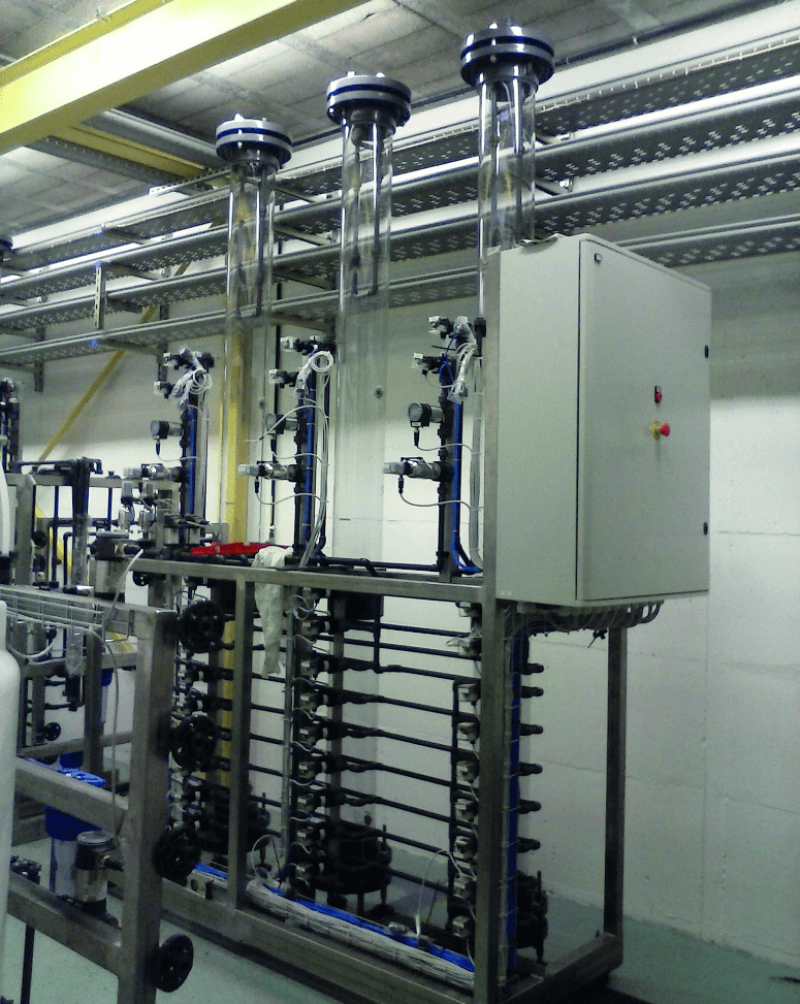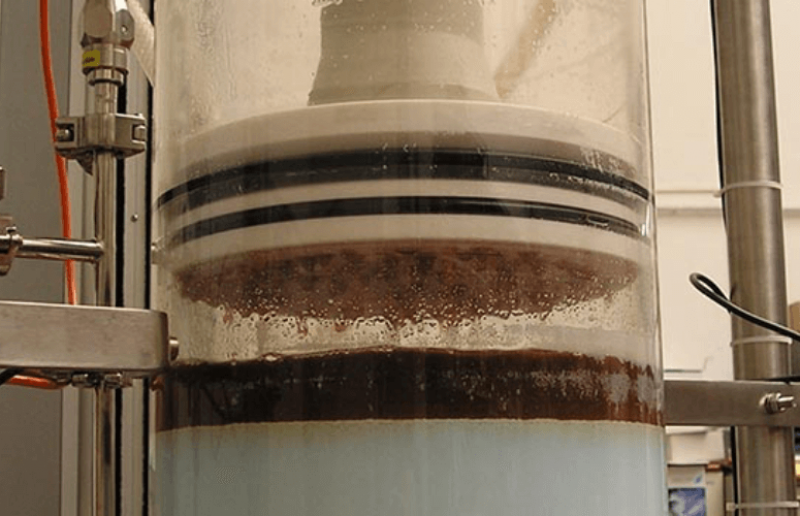Chromatography & Electrodialysis
Selective separation by means of specific resins (chromatography) and charged membranes together with electrical potential difference (electrodialysis)

Hydroair, in collaborative effort with international institutes and adsorbent resin manufacturer, built an expertise in designing process for different industrial chromatographic separations for molecules from antibiotics, natural active ingredients of plant origin, synthetic peptides, synthetic APIs, to macromolecules like enzymes, antibodies and plasmid DNA, DNA and RNA.
Hydroair can design column hardware for both packed bed and expanded bed format of adsorption chromatography. Packed bed and expanded bed purification technologies have been developed for molecules from penicillin G, rifamycin, vitamin B12, and beta-carotene to proteins like lactoferrin, lactoperoxidase, lysozyme, insulin etc. Hydroair is also proposing a new variant of expanded bed adsorption that attempts to overcome all disadvantages of packed bed and expanded bed operations.
Electrodialysis is a membrane-based process, an electrically driven technology that relies on the transmembrane transport of ions. In electrodialysis an electric field is applied across a stack of ion- exchange membranes to drive ions toward the oppositely charged electrode. As a feed solution enters the electrodialysis stack, cations and anions selectively pass through alternating cation and anion exchange membranes, respectively, forming ion-concentrated and weakened solution streams on each side of the membrane.
Electrodialysis can be used for water desalination, but also in bioprocessing, pharmaceutical, and food industries.

Hydroair is also proposing of a new version of expanded bed adsorption that attempts to overcome all disadvantages of packed bed and expanded bed operations.
- Industrial chromatographic
- Separations for molecules from antibiotics
- Natural active ingredients
- Synthetic peptides
- Synthetic APIs
- Macromolecules like enzymes
- Plasmid DNA, DNA and RNA




